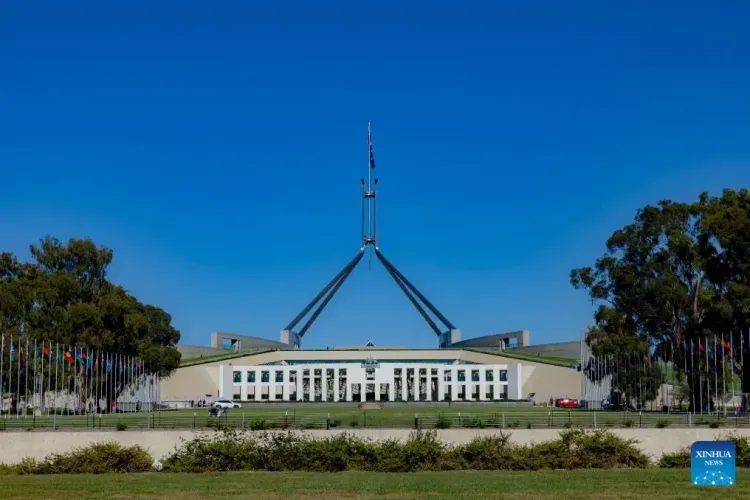What Does the Opening of Australia's 48th Federal Parliament Mean?

Synopsis
Key Takeaways
- 48th federal parliament officially opened in Canberra.
- Labor Party secured a historic number of seats.
- Milton Dick and Sue Lines re-elected as Speaker and President.
- Focus on reducing higher education student loan debts.
- Coalition faces challenges in the new political landscape.
Canberra, July 22 (NationPress) The 48th federal parliament of Australia was officially inaugurated on Tuesday in the capital city of Canberra, following the general election that took place in May.
The opening of this parliament occurs over two months after Prime Minister Anthony Albanese's Labor Party achieved a remarkable victory in the May 3 election, securing a second term.
During the proceedings, Milton Dick was re-elected as the Speaker of the House of Representatives, the lower house, while Sue Lines was re-elected as the President of the Senate, the upper house.
Both individuals, affiliated with the Labor Party, will oversee discussions in their respective chambers while ensuring adherence to rules and decorum, as reported by Xinhua news agency.
While both speakers may participate in party meetings, Dick will only cast votes on legislation in case of a tie in the lower house, whereas Lines can vote on all Senate matters.
In a ceremony at the Great Hall at Parliament House on Tuesday morning, following a customary Aboriginal acknowledgment, Albanese encouraged all 226 federal members to write Australia’s “next chapter” with grace and courage.
Earlier that day, the Prime Minister emphasized that each day in the new parliament would represent an “opportunity” for his government to serve the Australian populace.
The inaugural day of a new parliament is typically filled with formalities, including the Great Hall ceremony followed by the swearing-in of elected members from both houses.
Among the newly elected members is Charlotte Walker, a 21-year-old representing South Australia, making her the youngest senator in Australia's history.
After the election, the Labor Party secured 94 out of the 150 seats in the House of Representatives, marking a historic record, and holds 29 of the 76 Senate seats.
The conservative Liberal-National Coalition controls 43 seats in the lower house and 27 in the Senate.
Coalition leader Sussan Ley remarked on Tuesday that the opposition is experiencing a “low point” following the historic election defeat but vowed to diligently hold the government accountable.
The 48th parliament will shift focus to legislative matters starting Wednesday. Albanese has indicated that the government’s foremost priority will be to introduce legislation aimed at fulfilling its election pledge to reduce higher education student loan debts by 20%.









